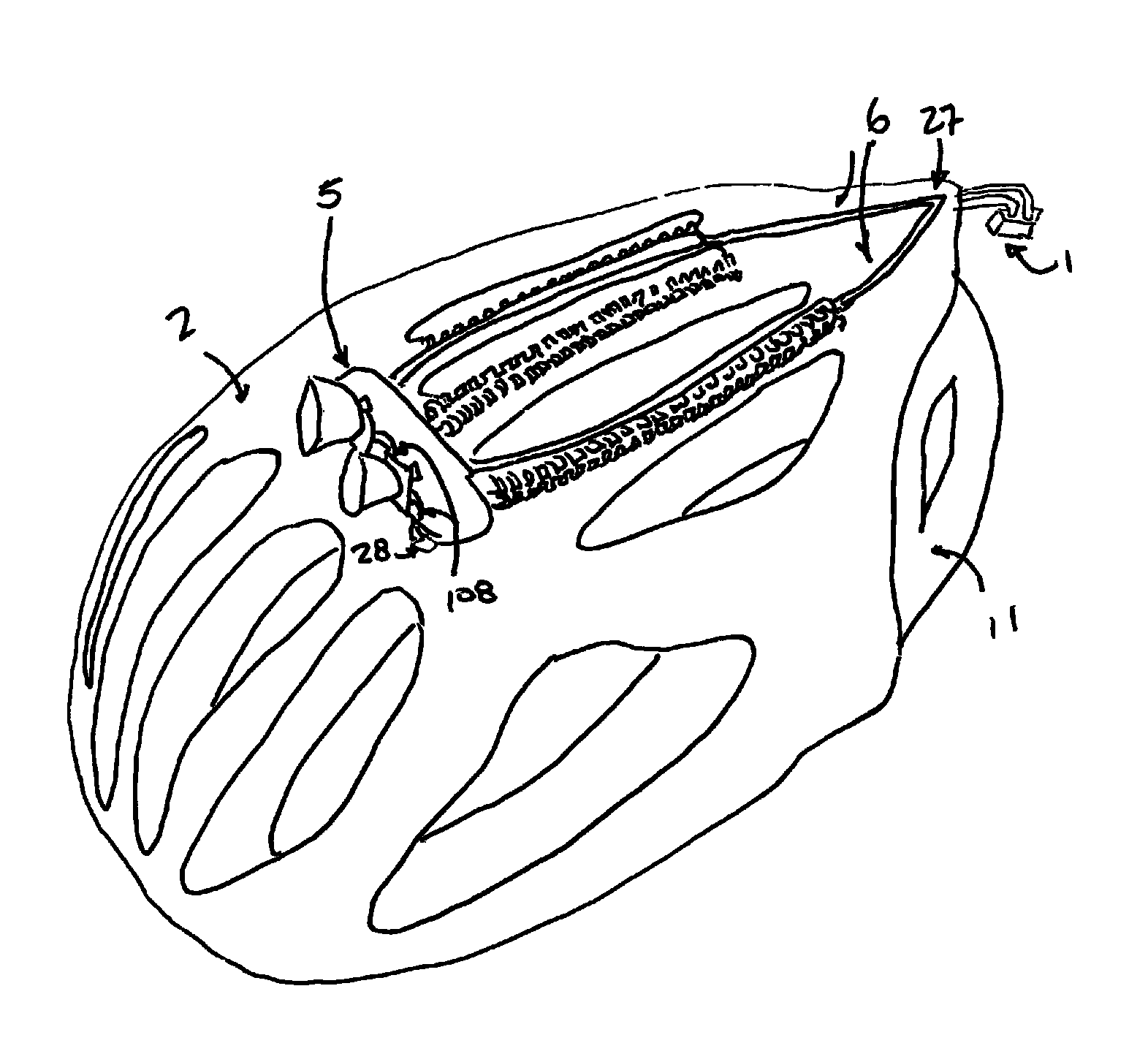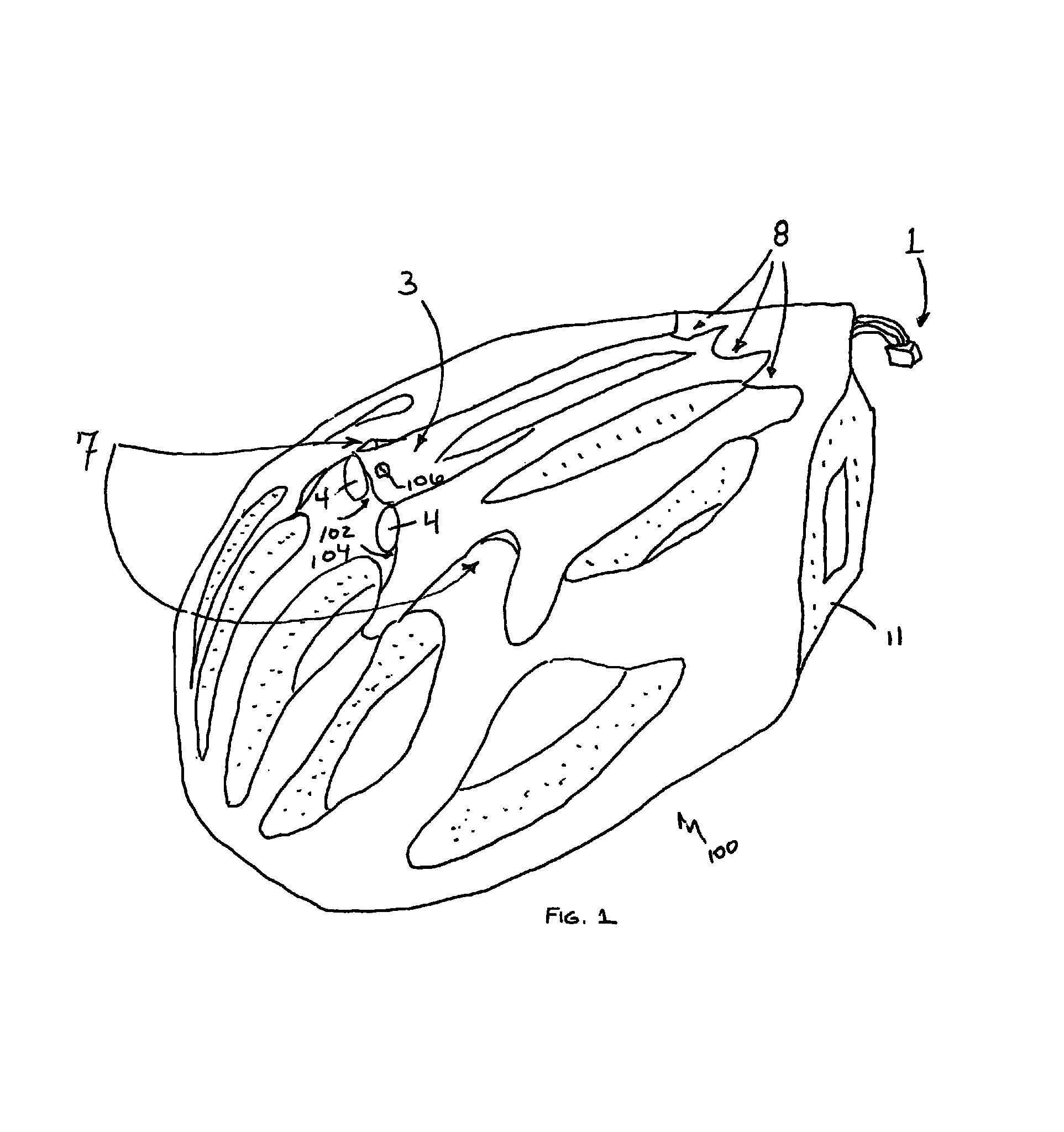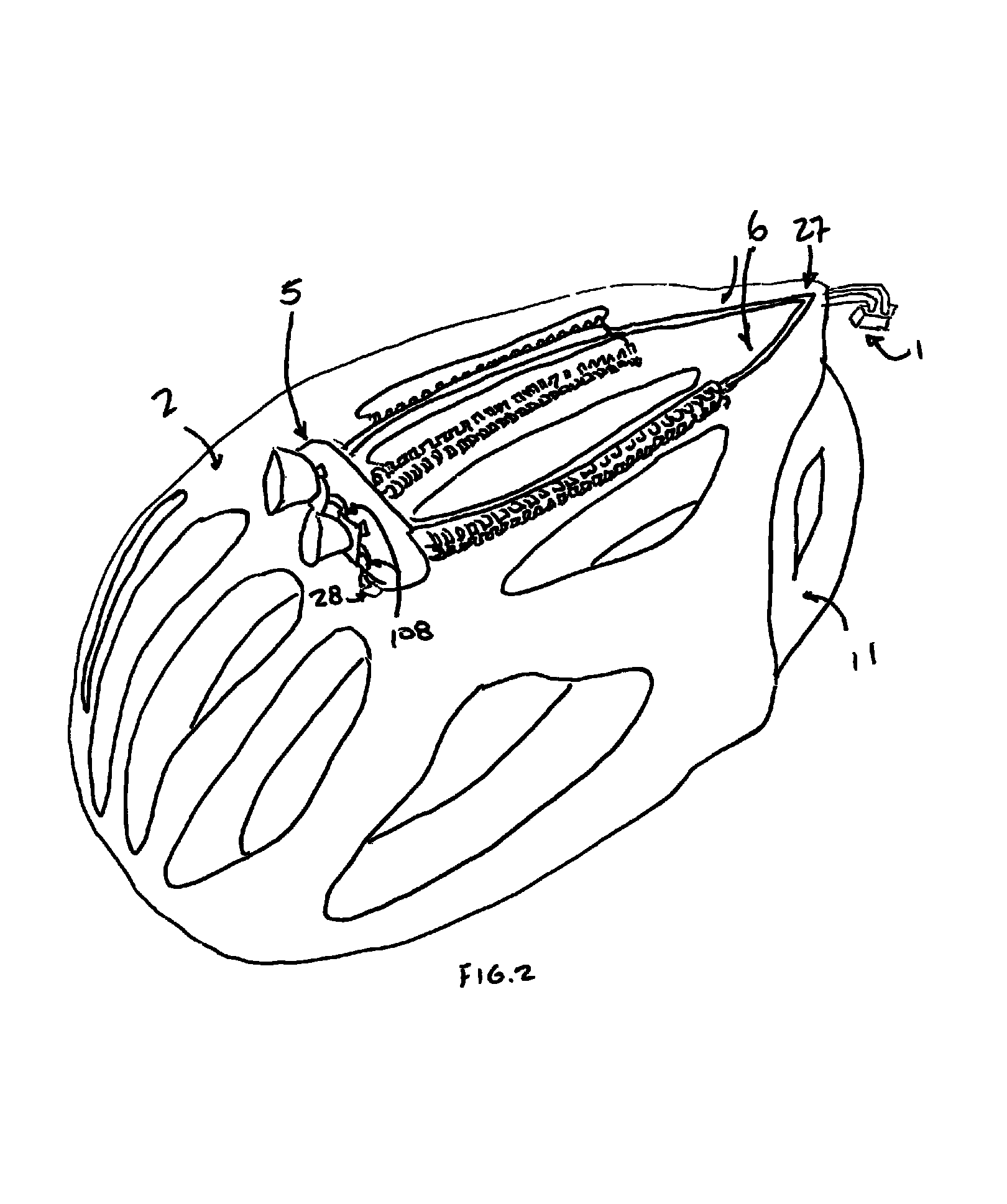Lighted helmet with heat pipe assembly
- Summary
- Abstract
- Description
- Claims
- Application Information
AI Technical Summary
Benefits of technology
Problems solved by technology
Method used
Image
Examples
Embodiment Construction
[0030]Helmet 100 of FIG. 1 is preferably constructed to include an outer or primary exterior shell 2 having a heat pipe assembly 5 between the primary exterior shell 2 and the heat pipe shell 3.
[0031]Helmet 100 of FIG. 1 is illustrated as a bicycle helmet, but other safety helmets are contemplated as well in various embodiments. As shown in FIG. 1, the LED optics 4 may be fully protected by the heat pipe shell 3 which also may at least assist in forming the forward facing heat pipe air vents 7. The heat pipe shell 3 may at least assist in completely protecting one or more heat pipes in a heat pipe assembly 5 from blunt and sharp impacts and may have rear facing exhaust vents as illustrated. The primary shell 2 may be intimately adhered to the underlying protective shell 11 which may be made of polystyrene and / or another suitable shock absorbing material. Securing straps are not shown but would be employed for most safety helmets 100 as a harness to firmly hold the helmet on the wear...
PUM
 Login to View More
Login to View More Abstract
Description
Claims
Application Information
 Login to View More
Login to View More - R&D
- Intellectual Property
- Life Sciences
- Materials
- Tech Scout
- Unparalleled Data Quality
- Higher Quality Content
- 60% Fewer Hallucinations
Browse by: Latest US Patents, China's latest patents, Technical Efficacy Thesaurus, Application Domain, Technology Topic, Popular Technical Reports.
© 2025 PatSnap. All rights reserved.Legal|Privacy policy|Modern Slavery Act Transparency Statement|Sitemap|About US| Contact US: help@patsnap.com



